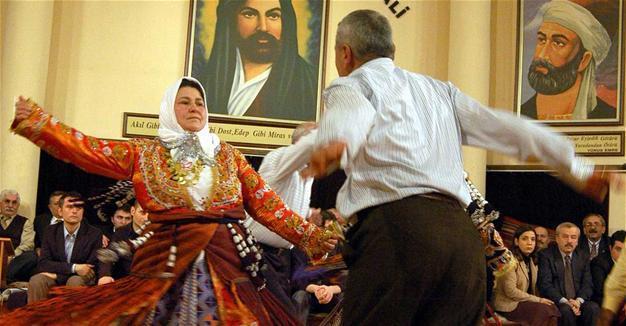Turkish Council of State hands down historic decision on electricity expenses of cemevis
ANKARA
 Turkey’s Council of State has ruled in a landmark decision that the state should cover the electric expenses of “cemevis,” Alevi houses of worships that are not officially recognized by the state.
Turkey’s Council of State has ruled in a landmark decision that the state should cover the electric expenses of “cemevis,” Alevi houses of worships that are not officially recognized by the state.The 13th Chamber of the Council approved a local court decision that ruled electricity expenses for the Erenler Education and Cultural Center Foundation are to be covered by the Religious Affairs Directorate (Diyanet), just as is the case for mosques.
The Istanbul Sixth Administrative Court had previously ruled in favor of the foundation’s demand for its electricity expenses to be paid by the state. However, the Esenyurt district governorate appealed the court’s decision to the Council of State arguing that “Alevism is a part of the richness and mysticism of Islam; it cannot be considered as a different religion. The Religious Affairs Directorate does not have the authority to accept a place as a house of worship other than mosques and prayer rooms [‘mescit’].” The district governorate said it could therefore not accept the cemevi’s demand for electricity costs to be met by the state.
The 13th Chamber of the Council however, quashed the Esenyurt district governorate by a large majority and approved the local court’s decision. “Everyone, without discriminating based on language, race, gender, political view, philosophy, belief, religion, sect and similar reasons, stands equal in front of law. State organs and administrative authorities should act in accordance with the principle of equality before the law,” stated the Council of State in its ruling.
The Erenler cemevi provides worship services free of charge and is open to the general public, the Council of State noted in its decision.
“As far as we can see, the cases won at the European Court of Human Rights [ECHR] have formed the basis of the [Council of State’s] decision’s foundation. Upon consideration of a top to bottom hierarchy system, it has been emphasized that the decisions of the ECHR are above the decision of the [Turkish] council of ministers,” said Alevi Foundations Federation Chairman Remzi Akbulut.
“[This is] a leading case. It is a pleasant development in the matter. After all, the ECHR’s has made its decision this way. The ECHR had decided for cemevis to be considered an official house of worship and its expenses to be covered by the state. The [State of Council] decision points to the ECHR,” said Cem Foundation president Erdoğan Döner regarding the ruling.
The ECHR ruled in December, 2014 that Turkey’s rejection to cover electricity costs for the Yenibosna Cemevi was a “violation of right to religion” and “discrimination.”
In its complaint, “Cumhuriyetçi Eğitim Ve Kültür Merkezi Vakfı” (Foundation for Republican Education and Culture) argued that the government’s policy of not covering electricity costs for a cemevi in an Istanbul neighborhood, while doing so for mosques, churches and synagogues, was discriminatory.
Turkey does not recognize cemevis as official houses of worship, which is why their expenses are not covered by a budget allocated to Diyanet.
















